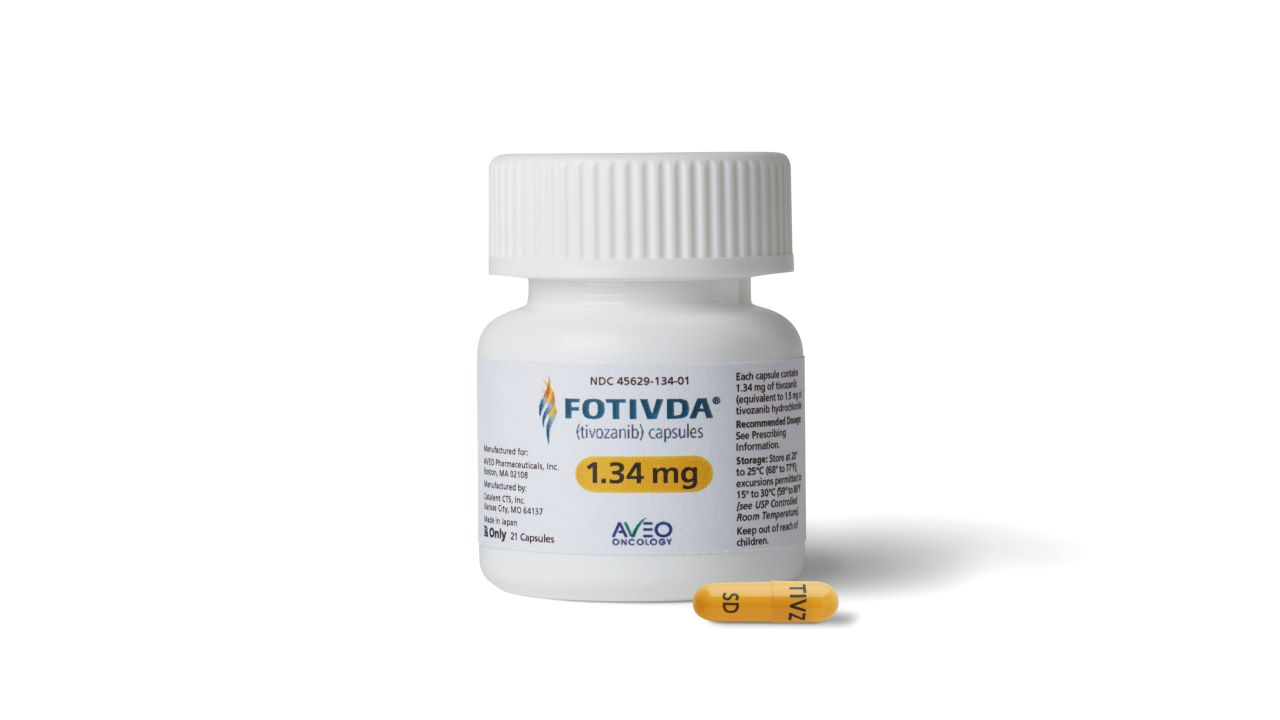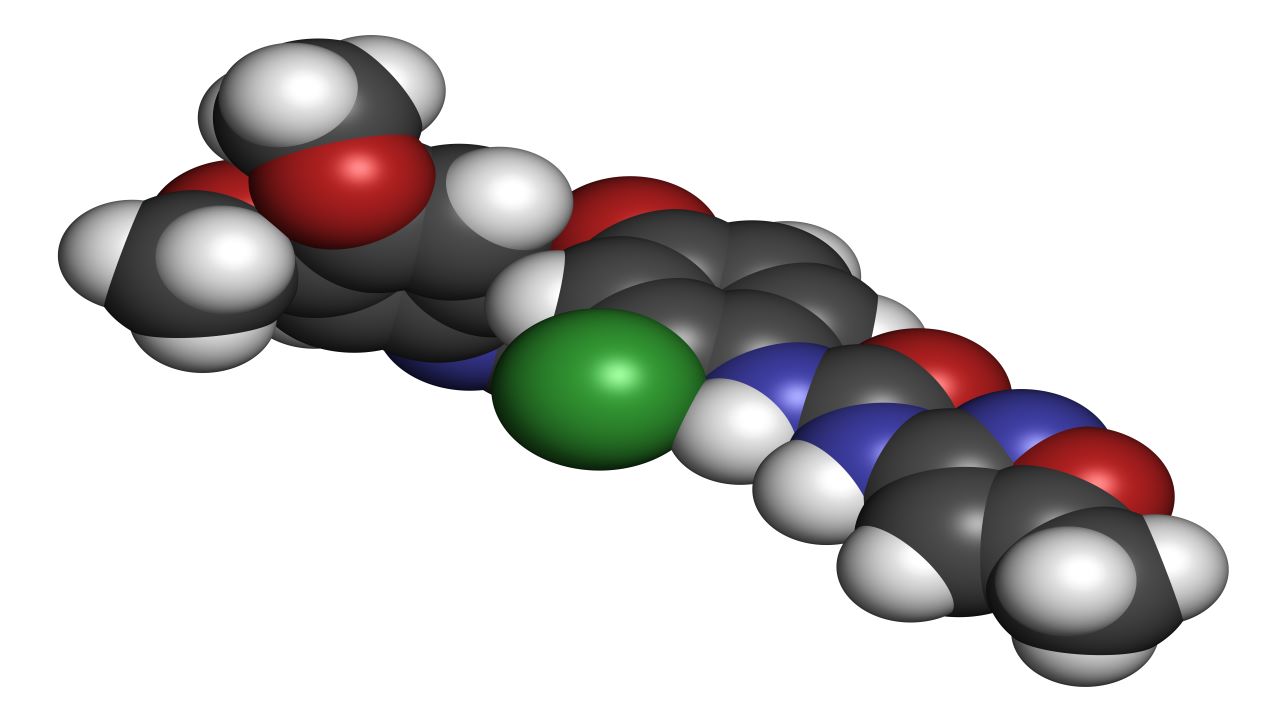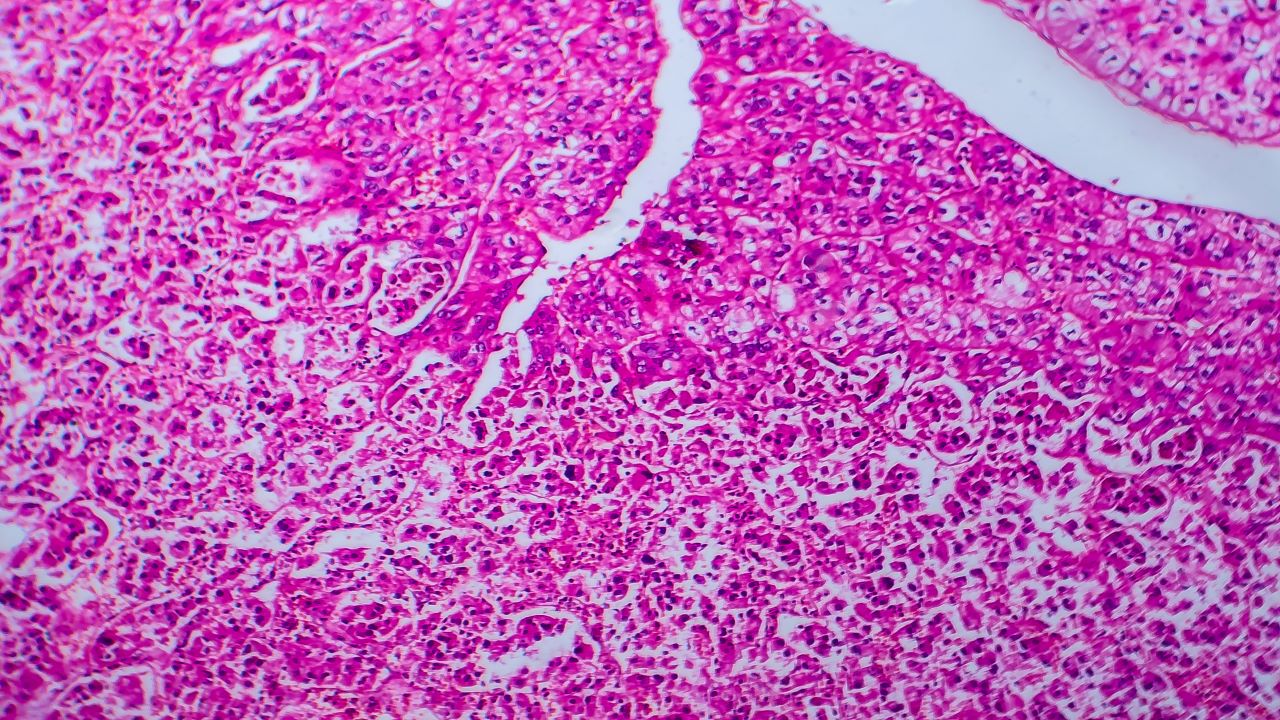FOTIVDA® (tivozanib) is an oral tyrosine kinase inhibitor (TKI) approved for the treatment of renal cell carcinoma (RCC) in adult patients. The drug is claimed to be the first therapy for relapsed or refractory advanced RCC to be approved by the US Food and Drug Administration (FDA). It is currently available as oral capsules, with one dosage of 1.34mg recommended per day.
FOTIVDA background and development
In December 2006, US-based biopharmaceutical company Aveo Pharmaceuticals signed a license agreement with Japanese pharmaceutical company Kyowa Kirin to develop, manufacture and commercialise tivozanib worldwide, except for Asia and the Middle East. In December 2015, UK-based pharmaceutical company EUSA Pharma acquired exclusive marketing rights to tivozanib for advanced RCC in Europe, as well as other territories outside North America, including South America and South Africa, under a licence agreement with Aveo Pharmaceuticals.
In February 2011, Japanese pharmaceutical firm Astellas Pharma entered a global agreement with Aveo to develop and commercialise tivozanib outside of Asia. This agreement was terminated in February 2014.
In August 2019, Kyowa Kirin and Aveo Oncology amended their license agreement to the terms of their 2006 tivozanib license agreement to repurchase the non-oncology rights of tivozanib in Aveo territories, which include the US and European Union (EU). This amended agreement excludes the rights sublicensed to EUSA Pharma.
FOTIVDA approvals
In March 2020, a new drug application (NDA) for tivozanib as a treatment for relapsed or refractory RCC was submitted to the FDA by Aveo Oncology. The application was accepted by the FDA in June 2020.
In March 2021, the FDA approved FOTIVDA to treat adults with relapsed or refractory advanced RCC after two or more prior systemic therapies. Aveo intends to commercialise FOTIVDA in the US by the end of March 2021.
In August 2017, the European Commission (EC) authorised FOTIVDA for the first-line treatment of adult patients with advanced RCC in the EU as well as in Norway, Iceland and other nations within EUSA Pharma’s remit.
Causes and symptoms of advanced RCC
RCC is the most common form of kidney cancer, which is among the ten most common cancers in both men and women. Its exact aetiology is unknown, but risk factors of the disease include hypertension, obesity and smoking.
In RCC, the cancer cells form in tubules of the kidney. Advanced or late-stage RCC (aRCC) can spread to other parts of the body.
Common symptoms of RCC include a lump in the abdomen, blood in the urine, weight loss, loss of appetite, fatigue and persistent pain in the side.
The American Cancer Society estimates that nearly 76,080 individuals in the US will be diagnosed with kidney cancer in 2021 and around 13,780 individuals will die from it.
FOTIVDA mechanism of action
Tivozanib is an oral, once-daily, potent vascular endothelial growth factor receptor (VEGFR) TKI discovered by Kyowa Kirin.
Tivozanib exerts its actions by selectively inhibiting the phosphorylation of VEGFR-1, VEGFR-2 and VEGFR-3. It was also found to inhibit other kinases, including c-kit and platelet-derived growth factor receptor beta (PDGFR-β).
Clinical trials on Tivozanib
The FDA’s approval of FOTIVDA is based on a phase three TIVO-3 study. This was a randomised, open-label, multicentre clinical trial to evaluate FOTIVDA in relapsed or refractory aRCC following two or more prior systemic therapies, compared to sorafenib, another TKI drug approved for the treatment of aRCC.
The study is backed by three additional trials in RCC patients and includes safety data from more than 1,000 clinical trial subjects and commercial availability in Europe.
The TIVO-3 study involved 350 patients, who were randomised at a 1:1 ratio to receive either tivozanib or sorafenib. The primary efficacy outcome measure of the study was progression-free survival (PFS), assessed by a blinded independent radiology review committee. Other efficacy endpoints were overall survival (OS) and objective response rate (ORR).
Among patients treated with FOTIVDA, a median PFS of 5.6 months was recorded, compared to 3.9 months for those treated with sorafenib. FOTIVDA also demonstrated a median OS of 16.4, compared to 19.2 months for sorafenib, while the ORR for FOTIVDA was 18%, compared to 8% for sorafenib.
The most common adverse reactions observed during the study included fatigue, hypertension, diarrhoea, decreased appetite, nausea, dysphonia, hypothyroidism, cough and stomatitis.





